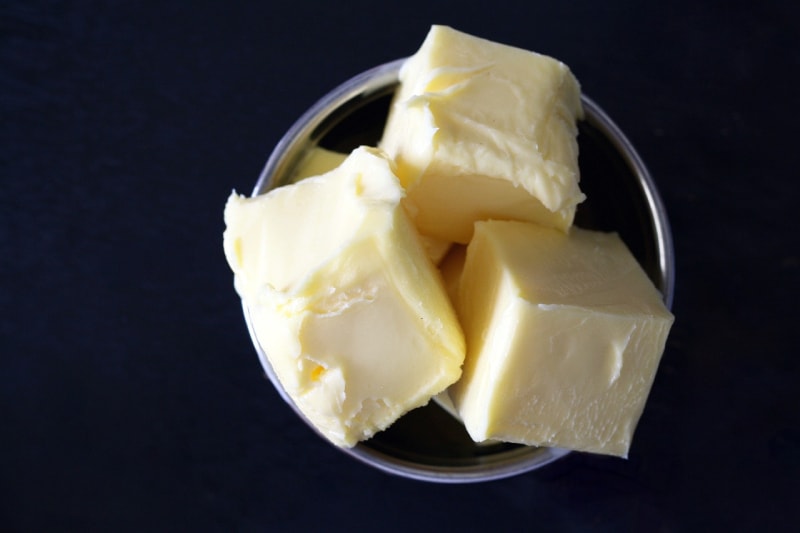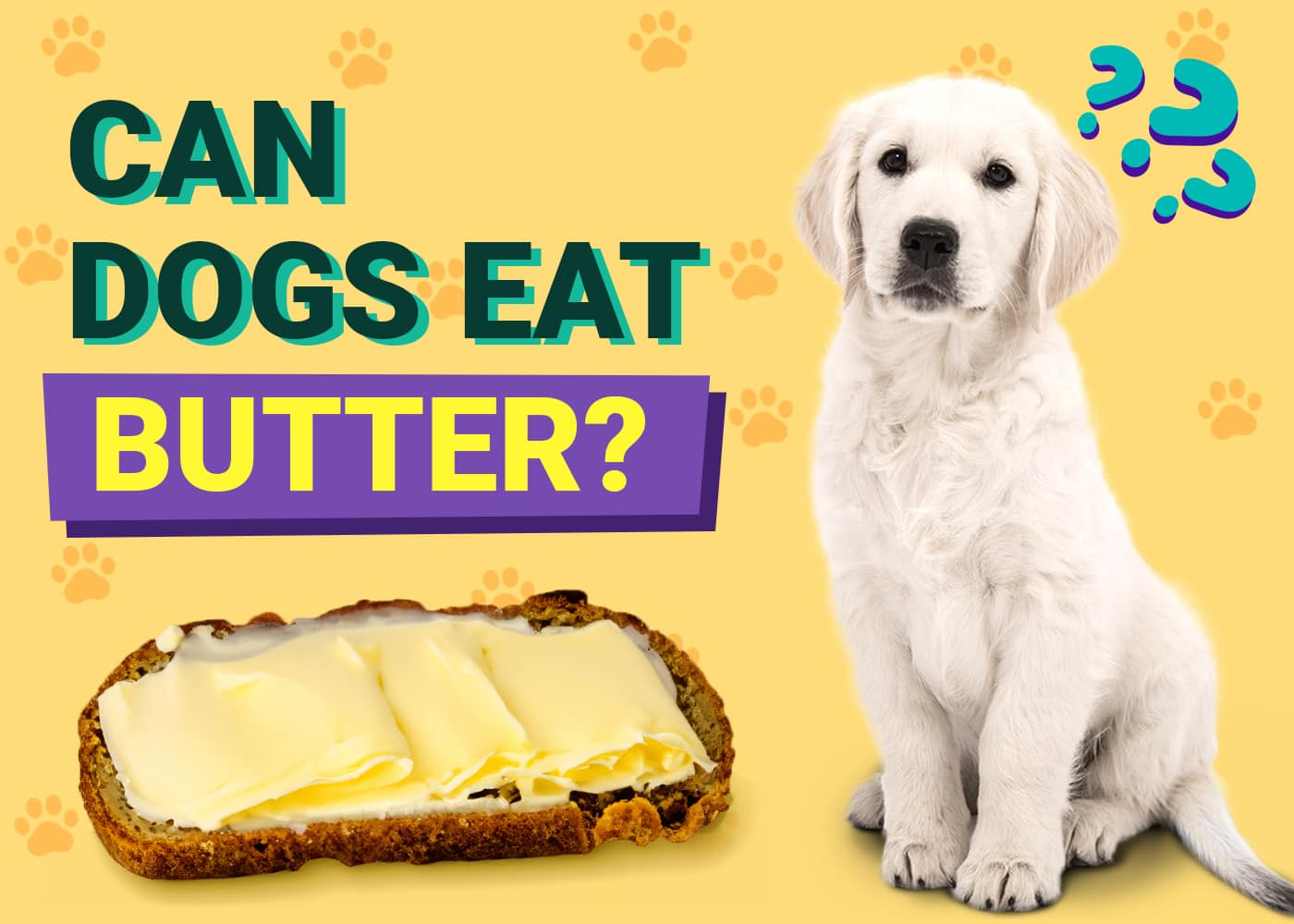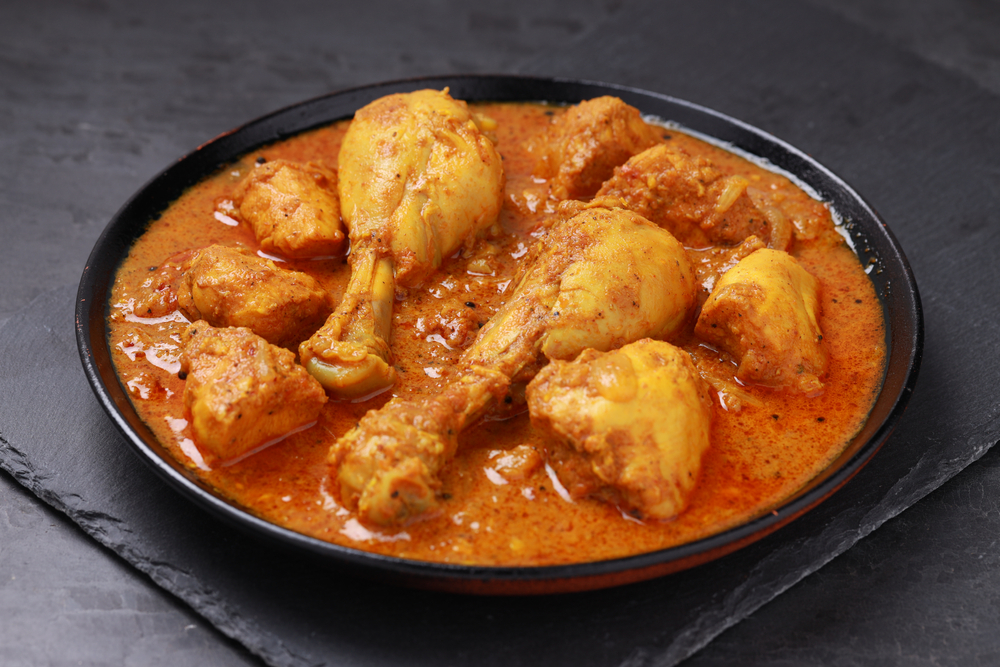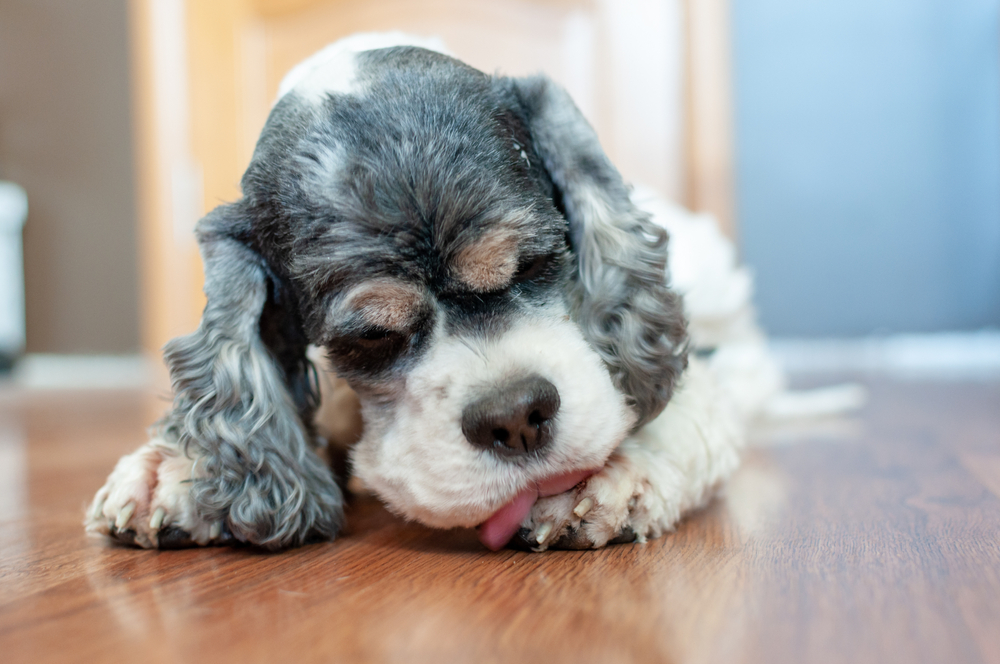It isn’t uncommon to feed your dog a bite or two from your plate; our canine pals are always overjoyed to get a taste of what we’re eating! But not everything we like eating is healthy or safe for our pets. A lot of people foods are incredibly unhealthy for our pups, and some are toxic and may cause irrevocable harm. So, it’s vital to check that foods are safe for your dog before giving them to your pet.
One common household stable is butter. But can dogs eat butter? Yes, they technically can, but, as you are probably aware, butter is incredibly unhealthy for our pets. Milk fat, water, and salt do not equal a healthy recipe for dogs.

Is Butter Safe for Dogs to Eat?
Butter isn’t toxic to your dog, but it is unhealthy! One of the most significant reasons is that butter is 50% saturated fat, and saturated fats are just as unhealthy for dogs as they are for us. Fatty foods and canines aren’t a good mix. In small amounts, they can cause mild diarrhea or vomiting. If your dog ingests a large amount of butter, they could end up experiencing gastroenteritis (inflammation of the intestinal lining) or pancreatitis (inflammation of the pancreas). Pancreatitis is a potentially life-threatening illness, so fatty foods like butter should be avoided.
Also, most dogs are lactose intolerant and can’t handle dairy products. Butter can cause gas, bloating, and indigestion if your dog is sensitive to dairy. The signs will likely be mild, but a vet visit will be needed if they are severe. You can always contact a veterinarian for more information if you are worried.
PangoVet. It’s an online service where you can <b>talk to a vet online</b> and get the personalized advice you need for your pet — all at an affordable price!
</p>
<div class="su-button-center"><a href=https://www.dogster.com/dog-nutrition/"https://pangovet.com/?utm_source=dogster&utm_medium=article&utm_campaign=dog_eat_drink%22 class="su-button su-button-style-default" style="color:#FFFFFF;background-color:#FF6600;border-color:#cc5200;border-radius:9px;-moz-border-radius:9px;-webkit-border-radius:9px" target="_blank" rel="nofollow"><span style="color:#FFFFFF;padding:0px 24px;font-size:18px;line-height:36px;border-color:#ff944d;border-radius:9px;-moz-border-radius:9px;-webkit-border-radius:9px;text-shadow:none;-moz-text-shadow:none;-webkit-text-shadow:none"> Click to Speak With a Vet</span></a></div></div></div>"}" data-sheets-userformat="{"2":513,"3":{"1":0},"12":0}"> If you need to speak with a vet but can’t get to one, head over to PangoVet. It’s an online service where you can talk to a vet online and get the personalized advice you need for your pet — all at an affordable price!

If dogs consume fatty ingredients like butter over a longer period, weight gain and obesity will likely follow. Just like in humans, obesity will put your dog at risk of conditions that can seriously impact the quality and length of their life. Joint problems, cardiac disease, and spinal injuries are just a few of the issues that can accompany canine obesity. So, while a tiny lick of butter might not do any harm, a large portion is hazardous.
What to Do If Your Dog Eats Butter

If your pup has only eaten a tiny amount of butter, they should be fine. At most, they’ll likely suffer from some mild digestive discomfort because of the fat and dairy in it. However, if your dog has managed to eat a whole stick of butter, you should immediately contact your vet. Depending on the size of your dog, your vet may recommend steps to reduce the absorption of it.
If your dog consumes fatty foods frequently, they’re more susceptible to pancreatitis.
- Lethargy
- Eating less
- Vomiting
- Diarrhea (possibly with blood)
- Stomach pain
These signs can show up within 4 days of your pet eating too much butter. Call your vet or take your dog in for an exam if you see any of these or if you are concerned about how much they may have eaten.
Final Thoughts
Though butter isn’t toxic to dogs, it’s incredibly unhealthy. Butter provides no nutritional value and contains too much saturated fat, which can lead to problems like pancreatitis and gastroenteritis. Butter is also a dairy product, which may lead to mild vomiting and diarrhea in your pup, as most canines are lactose intolerant.
Overall, it’s best to avoid letting your pet eat butter or foods containing butter. Instead, stick with dog treats so you know that what you’re feeding them is safe!
Featured Image Credit: rodeopix, Pixabay











